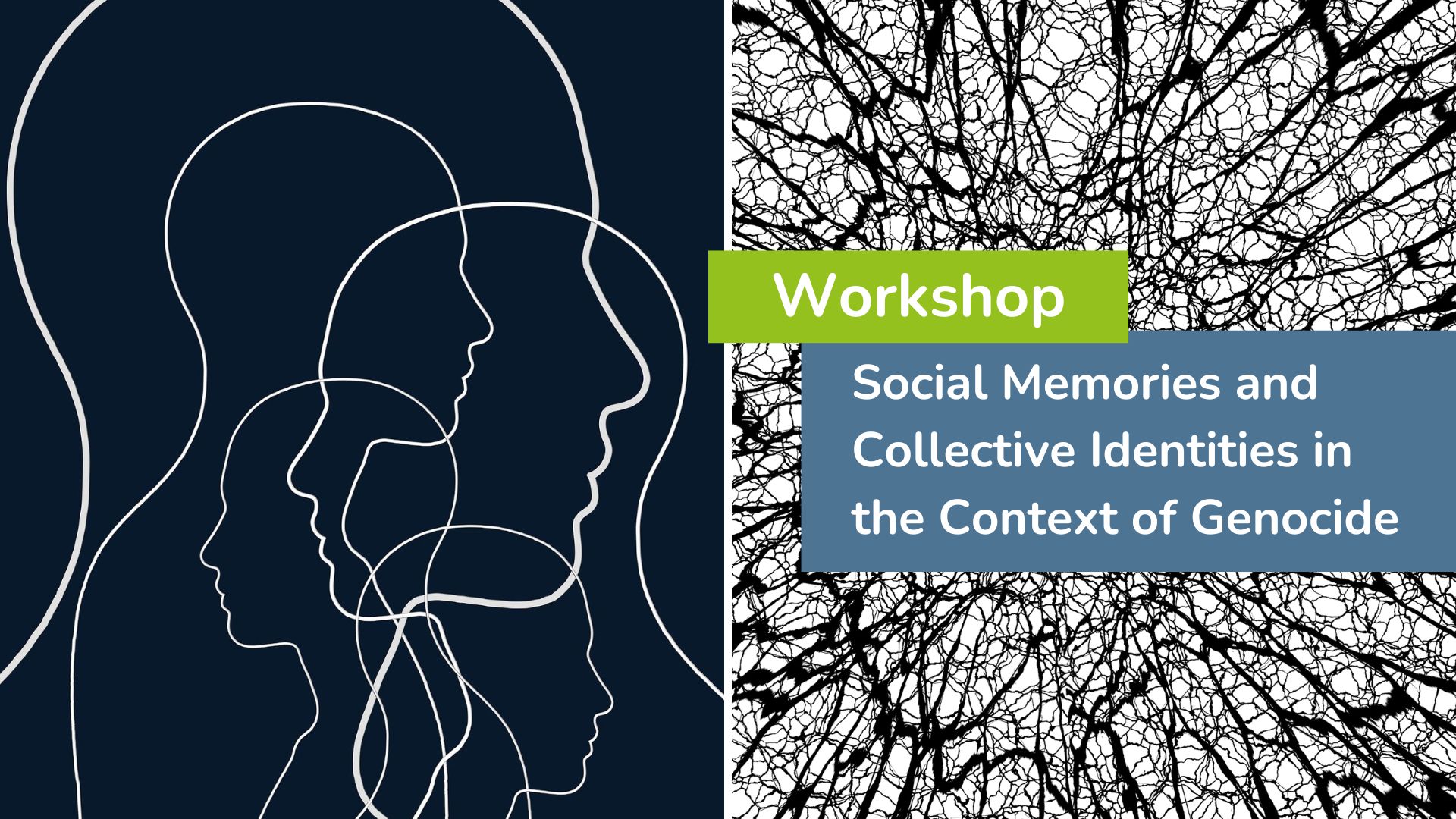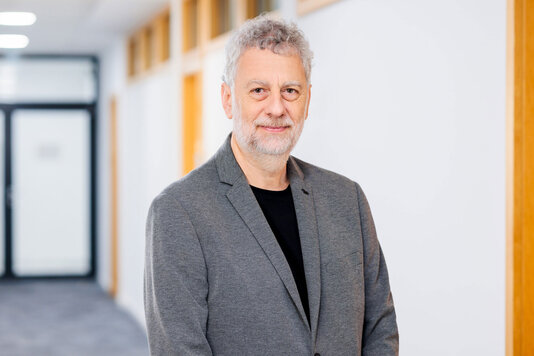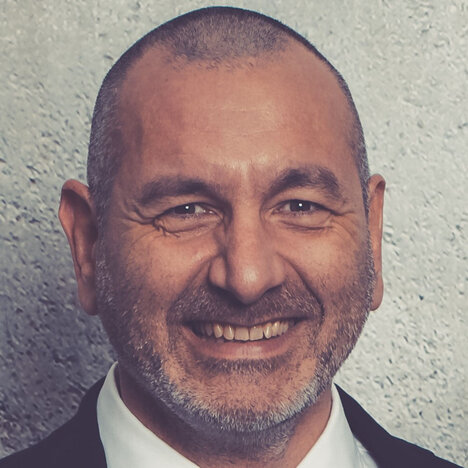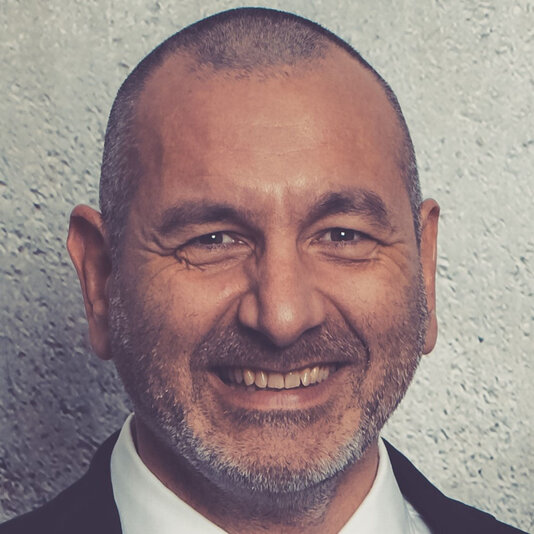
This transdisciplinary workshop challenges different approaches to social memories and collective identities in the context of genocidal social practices. It seeks to develop a nuanced understanding of memory and identity that goes beyond essentialised conceptions of perpetrators, victims, and bystanders.

Both the concept of memory (and the idea of social or collective memories) and the concept of identity (and the idea of social identities) have been the subject of much analysis and different interpretations. Still, there has been no consensus on how to define them, comprehend them, or determine their limits or possibilities.
At the same time, most of the literature in genocide studies currently assumes an essentialised understanding of identities in a binary way, in which the ‘identity of the perpetrators’ harms the ‘identity of the victims’ while there are ’bystanders’ who can intervene or do nothing. This perspective is limited in its understanding of the consequences of genocides for identity formation. It is furthermore far from the original conception of genocide by Raphaël Lemkin who defined it as a re-organisation of the identity of a society as a whole, through the imposition of the oppressor’s preferred national narrative over those of the oppressed.
However, most research on memory (whether collective or social) identifies it as a complex construction, full of nuances and with strong connections to the processes of shaping collective identities.
The objective of the workshop is to challenge different approaches to social memories and collective identities, as well as their specificities, in the context of genocidal social practices. Some of the topics included are: how to work with testimonies, including the complexities of memories and identities; how to engage with official narratives from different sectors of society; how to analyse the narratives of memorial sites; how the concepts of perpetrators, victims, and bystanders are constructed and essentialised, and what the consequences of such constructions are.
The workshop is co-organised by Daniel Feierstein, Director of the Center of Genocide Studies at the National University of Tres de Febrero (Argentina) who is currently a Senior Fellow at the College, and Christian Gudehus, permanent fellow at the Centre for Social and Cultural Psychology and Historical Anthropology (KKC) at Ruhr University Bochum.
Introduction to the workshop
Daniel Feierstein & Christian Gudehus
Brief introduction of participants and their perspectives on the topic
Genocide as a Social Practice: Reorganising the Social Fabric through Terror
Daniel Feierstein
Open discussion on genocide studies and its consequences in the affection of identities
Lunch break
A Different Kind of Narrative – The Dersim 1937-39 Oral History Video-Archive
Christian Gudehus
Open discussion on trauma, memory studies and its consequences in the affection of identities
Open discussion about all analysed subjects and their connections
Working with testimonies. Examples from different cases and materials
Lunch

Prof. Daniel Feierstein
National University of Tres de Febrero (Argentina) | Sociology
Daniel Feierstein holds a PhD in Social Sciences from the University of Buenos Aires (Argentina), where he runs the Observatory of State Crimes. He is also Director of the Center of Genocide Studies at the National University of Tres de Febrero and Senior Researcher at the National Research Council of Argentina (CONICET). His work primarily focuses on genocidal social practices and has been crucial in the increased recognition of Argentina’s military junta’s crimes as genocide. He was a member of the National Committee of Ethics in Science and Technology (CECTE) at the Ministry of Science, Technology and Innovation in Argentina from 2022 to 2024.
Daniel Feierstein was President of the International Association of Genocide Scholars (IAGS) from 2013 to 2015. He has also acted as a judge and chair in different sessions of the Permanent Peoples’ Tribunal (PPT) in the cases of Sri Lanka (2010 and 2013), Mexico (2014), Myanmar (2017), Colombia (2021) and West Papua (2024). He was adviser of different bodies in the United Nations and he appeared as an expert witness before the Inter-American Court of Human Rights in 2021.
Feierstein has published 12 authored books in Spanish and many antologies. His authored books in English are Genocide as a Social Practice. Reorganizing Society under the Nazis and Argentina’s Military Juntas (2014), Social and Political Representations of the COVID-19 Crisis (2022) and Memories and Representations of Terror. Working through Genocide (2024).

Prof. Christian Gudehus
Ruhr University Bochum | Social Science, Social and Cultural Psychology
E-mail: christian.gudehus@rub.de

Prof. Christian Gudehus
Ruhr University Bochum | Social Science, Social and Cultural Psychology
E-mail: christian.gudehus@rub.de
Christian Gudehus is a social scientist with a particular interest in social and cultural psychology. Together with Pradeep Chakkarath, he has been publishing the journal HARM as an open-access publication since January 2022. He also founded the journal Trauma Kultur Gesellschaft (trauma culture society) together with colleagues from the clinical field and the social sciences and humanities. He is also a permanent fellow at the Hans Kilian and Lotte Köhler Centre (KKC) for Social and Cultural Psychology and Historical Anthropology located at Ruhr University Bochum. Christian Gudehus is currently leading a project funded by the German government that is looking into the mass violence perpetrated by the Turkish military in the Dersim region in 1937/38. At Ruhr University Bochum, he teaches and researches with a focus on collective violence, its conditions, its events and its consequences.